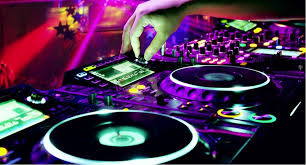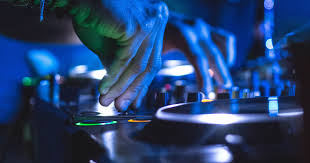What Makes A Great DJ?
Being a competent DJ who puts on a decent live show every now and again is one thing. Being a great DJ who leads the way and inspires others is an entirely different matter. There are several key attributes which separate the great DJs from the good, and the best from the rest. Here’s what makes a great DJ, featuring insights from those in the industry.
Demonstrating a love of DJing (and music in general)
This first point may seem self-explanatory, but a lot of DJs don’t fully appreciate the lucky position they’re in. There are DJs who get into the industry to ‘look cool’, do it for a few years and fall off the radar.
Don’t be this person. Show that you’re a DJ who is passionate about music and loves what they do. Music should be a form of self-expression, rather than simply a means to an end.
Take Carl Cox as an example. He’s been DJing for more than 40 years and is the king of techno music in many people’s eyes. He’s ahead of the trends, pioneers new tracks and continues to break boundaries.
Undoubtedly, one of the main reasons for his success is that DJing is not a job to him. In his own words, it’s a way of ‘celebrating life’ and he’s as passionate about it as the day he started.
In summary, be like Carl. OK, not everybody can reach Carl Cox’s level, but it certainly can’t do you any harm to follow his blueprint. If you have a passion for DJing, this will come through in your music and set you apart.
Not being afraid to adapt and diversify
Inventing and reinventing your style is vital if you want to be a successful DJ in the long run. The last thing you want is to come across as a one-dimensional DJ with limited musical scope. Rather, you want to show that you can adapt your style to reflect the ever-changing musical landscape around you.
Take Armin van Buuren as an example. He started out playing progressive house and vocal trance music, but over time his music has evolved to such a degree that he’s recently headlined top EDM festivals such as Ultra Music Festival in Miami and Tomorrowland in Belgium.
Referring back to Carl Cox – through the years, his music has encompassed a wide range of genres such as funky techno, tech-house and funk soul.
You get the picture. If you want to be a great DJ, it’s important to have enough aces up your sleeve in terms of the range of styles you play. At the same time, you shouldn’t compromise on your identity, and what makes you unique. You should play music which people can identify as ‘you’, that you love and care about.
Proactively building relationships with venues
Taking it upon yourself to approach promoters and club managers could be career-defining. These people could hold the key to an amazing opportunity, and every great DJ will attribute part of their success to building and nurturing relationships with people who gave them their big break.
However, knowing how to approach these people and what information to get across can be an exact science. You may only have a few seconds to talk to someone and promote your work, so it’s important to make every second count.

How to DJ: What sort of DJ are you?
The first step in learning how to DJ is too decide what type of DJ you want to be;
The Club DJ
Each club has a different feel, reputation, and audience… which also means that clubs vary in what they expect from their musical selection. Typically, the job of the resident DJ at a night club is to maintain a moving dance floor. Often, club DJs will perform long blends (transitions) between songs, or some other trickery to keep people’s feet moving.
This DJ must know how to ramp the energy up and down, and maintain a balance between an active dance floor, and a busy bar.
The Performer (Turntablist)
People go to see this DJ because of who they are, their reputation, and what people think they can do behind the decks. Their mixes are displays of raw skill, impressive tricks, and clever transitions.
The “exhibitionist” DJs fit here, such as turntablists (focus on cutting and scratching), “controllerists”, and other types of live performers. DMC DJ’s are performers.
The Mobile DJ
These are the ones who perform at your wedding, set the tone for your corporate event, or provide a memorable prom party.
Often the entrepreneurial type, mobile DJs have a lot of things to keep track of. In some cases, they are solely responsible for the setup and teardown of equipment, planning the show, managing the crowd, and making any announcements.
This kind of DJ often needs to be comfortable with taking requests (and sometimes even entire playlists), speaking into a microphone, and investing in sound equipment.
The Radio DJ
The concept of the DJ owes it’s origins to radio.
The radio DJ’s job varies greatly, from the person who announces the weather between songs to full-on music curation.
While many corporate radio DJs have lost control over the music, the art lives on in podcast format.

Try and gauge how much energy the crowd have
You can usually tell from body language, how frenzied they may be dancing, how many people are on the dance-floor compared to previous tracks. Depending on what type of gig it is you’ll also know whether they’ve just eaten, are sober or tipsy, etc. Use this knowledge to know whether a particular track will make them dance or turn them off.
Don’t be afraid to ditch the track
You put on a tune you thought they’d love but disaster! They start leaving the dance-floor, they’re just not feeling it! What do you do!?
Well whatever you do don’t keep the track playing. Find another track quickly and get the party back on track, There’s no need to let a track no one’s in to playing for 3 or 4 minutes. It’ll kill the mood and ruin the party. Be prepared to ditch it and move on after 30 seconds. No one will mind, in fact many will be glad! It’ll get the party back on track.

Song Blending Techniques
There are numerous song-blending techniques which can be overwhelming if you try to digest them all at once. However, the more you get under your belt, the more flexibility you have in creating an effective mix between songs or genres. Written explanations would not do them justice, so I will point you to a two tutorials that outline the basic techniques.
When you’re introducing a new song, you should either be filtering the new song out, or removing one of the songs’ bass until you’ve completed the transition. Both of these techniques help make the transition less jarring.
WHAT SKILLS DO YOU NEED TO BECOME A DJ?
DJing isn’t just about the set you play and the mix you make; you also need technical and inter-personal skills to succeed in this demanding profession.
The type of DJ you want to be will determine many of the skills that you need, but in general, some skills are essential. These include:
- Organisation: Knowing how to manage your time, and stay on top of your workload is vital for pretty much any job, but as you’ll probably be working for yourself as a DJ, it’s even more critical.
- People Skills: Anyone who hosts live sets, for weddings, nightclub events, and other celebrations, needs to be able to interact with guests. You’ll need to speak passionately about music and be able to help them remember the name of the tunes they want to hear.
- Public Speaking: Playing at a wedding or special event means making toasts, introducing speakers, and much more, so you need to be comfortable speaking publically. As you grow more comfortable in your role, you should feel more confident. If you’re struggling to speak publicly, then consider taking on a more behind-the-scenes role. Become a producer, so that you can continue creating the fantastic music that you enjoy, without having to speak publicly.
- Networking: If you want to get gigs, then you’ve got to network with nightclub managers, promotors, and your fellow DJs. Collaborating with members of the music community will help you to land gigs, stay on top of the latest developments in the market, and much more.
- Passion: If you’re not passionate about music, then you’re wasting your time, and this career isn’t for you. DJing requires a lot of love for music, so you need to make sure that you keep the spark alive and keep listening to your favourite tunes. Whether you love hip hop or adore dance music and club tracks, your taste doesn’t matter- you’ll just need to be genuinely passionate about learning about new tunes.
- Technical Ability: Many disco jockeys use cutting-edge software and equipment, so you need to be tech-savvy if you want to make it as a DJ. If you’re good with technology and adept at learning new systems quickly, then you’ll have a better chance of succeeding in this continually evolving market.